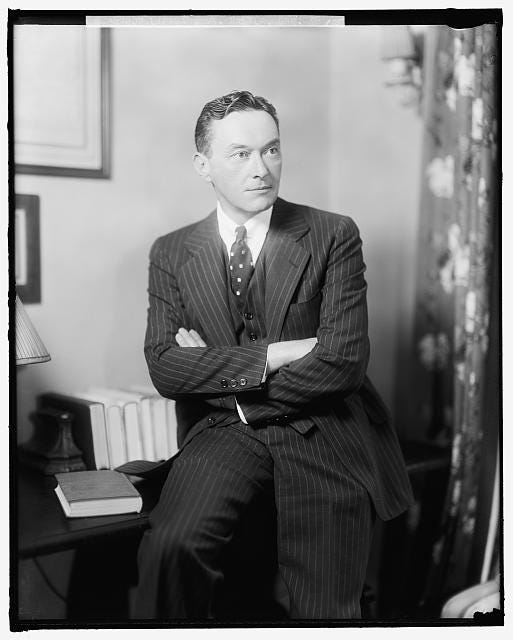Army Psyops and Public Opinion
Walter Lippmann, World War I, and Army Psychological Operations
“The way in which the world is imagined determines at any particular moment what men will do.” - Walter Lippmann, Public Opinion
In 1922, Walter Lippmann published his book Public Opinion, one of the twentieth-century’s most influential tracts on democracy, human behavior, and propaganda. At this point, Lippmann had already established himself as a rising star in journalism and government—he helped develop President Woodrow Wilson’s 14 points for the end of World War I. His influence in American society would only continue to rise through the course of the twentieth century, leading Ronald Steel to title his biography of Lippmann, Walter Lippmann and the American Century. Yet less well-known is Lippmann’s role as one of the founding members of what is now the Army Psychological Operations Branch or “Psyops”, which celebrated 18 years as an official branch this month (prior to this, it existed in many different forms over the past 106 years).
Though his Army service was brief, Lippmann is a powerful case study in the ways in which psyops, whose mandate is directed at foreign actors, has both influenced and been informed by the prevailing trends in domestic media and politics. There is much that is the same with the art of persuasion it turns out, whether the goal is to deceive an adversary in advance of an operation or to mobilize supporters for an election.
For both Lippmann and Psyops, World War I was a defining experience. As Dr. Jared Tracy, Deputy Command Historian at Army Special Operations Command wrote in a piece celebrating the 100th anniversary of Army psychological operations:
“…the practice of using psychological tactics to influence foreign populations predated 1918. However, it was not until World War I that the U.S. waged the first orchestrated military propaganda campaign in its history, establishing two agencies specifically for that purpose.”
In June 1918, Army Captain Heber Blankenhorn approached Lippmann about helping to run a propaganda effort in Europe. At the time, Lippmann had taken a break from his job as one of the founding editors of the New Republic magazine to work for Colonel Edward House, Woodrow Wilson’s close advisor. Lippmann agreed and was commissioned a captain in the Army.
Walter Lippmann. Source: Library of Congress.
Blankenhorn, Lippmann, and the rest of the psyops team focused on getting leaflets extolling democratic ideas behind enemy lines. The effort ultimately succeeded in distributing more than 3 million such materials, though there was significant tension with the work as President Wilson did not want a military-led propaganda effort and also was not a fan of Walter Lippmann. Ultimately the U.S. War Department shut down the Army psyops effort, bringing its three-month work to a close in November 1918.1
Dropping leaflets has long been a core mission for Psyops. Source: DVIDS.
Following the war, Lippmann’s stature and influence continued to grow. He was a force in shaping public policy and elite opinion for the next five decades, until his death in 1974. Throughout his career, he exerted an outsized influence in how political actors thought about mobilization mass opinion; though his presence is much lighter in American politics today, he is still frequently invoked in conversations about mass communications and politics.
The trajectory for Army psychological operations was much less linear. It was not until after World War II that the Army created a permanent psyops structure. Housed within special operations, this structure continued to evolve over the course of the 20th century. In 2006, the Psyops was made a formal Army branch. Today this branch leads the Army’s efforts to persuade, change, and influence public opinion and behavior in support of Army objectives.
Additional Resources:
Learn more about Army Psyops here.
For a more recent historical look at the intersections of foreign and domestic public opinion work, check out Harvard historian Jill Lepore’s 2020 book, If Then: How the Simulmatics Corporation Invented the Future.
Be Part of Army 250
If you’d like to write a newsletter post, share an educational resource about the Army, or lift up an opportunity for people to connect with the Army (e.g., an event, story, etc.), please contact Dan (dan@army250.us).
For more on this, see Snyder, Brad. (2017). The House of Truth: A Washington Political Salon and the Foundations of American Liberalism. Oxford University Press.




